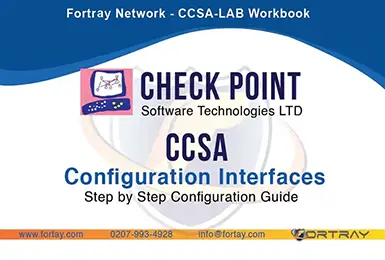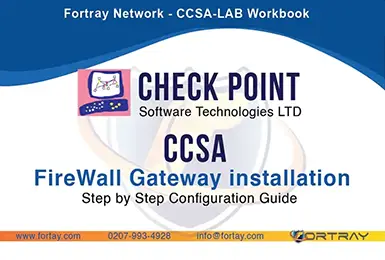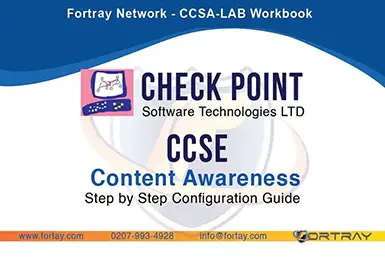Over 1,000+ Fortray graduates have grown their careers!







Start Your IT Career and Grow
Fortray's CCNA 200-301 training course is designed to provide you with a comprehensive understanding of networking concepts, including network fundamentals, IP connectivity, security, and automation. Through a series of real-world lab scenarios, you’ll gain hands-on experience in configuring and troubleshooting Cisco devices, managing network traffic, and securing your network infrastructure. This course equips you with the practical skills necessary to succeed in real-world network environments and prepares you for the Cisco Certified Network Associate (CCNA) 200-301 exam.
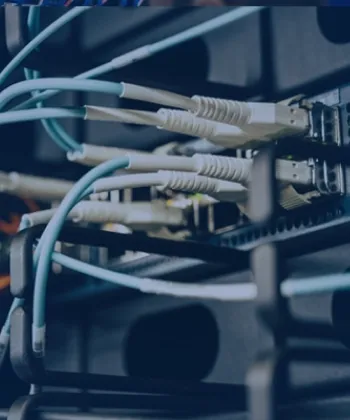
The Program is designed for Individuals having:
-
Basic understanding of computer networking concepts
-
Familiarity with networking devices (routers, switches, etc.)
-
Experience with operating systems (Windows, Linux, etc.)
-
Comfort with using command-line interfaces (CLI)
-
General understanding of computer hardware and software
-
Basic troubleshooting skills
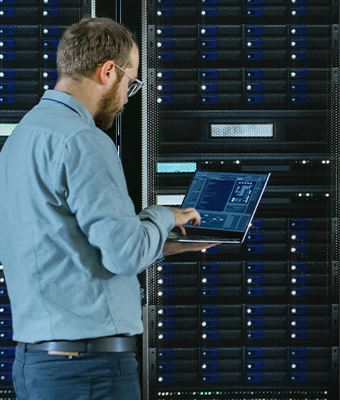
Following are the Key Features:
-
Instructor-Led Training with Expert Guidance
-
Hands-On Labs for Real-World Practice
-
Comprehensive Curriculum Covering Key Topics
-
Focused Certification Exam Preparation
-
Industry-Relevant Real-World Scenarios
-
Job-Ready Networking Skills Development
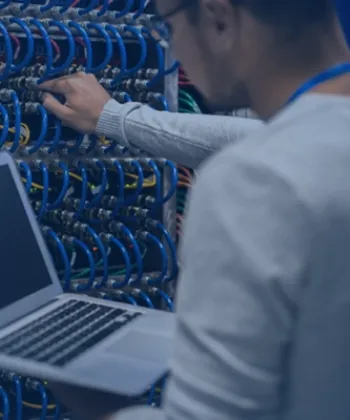
Following is the list of Skills Covered:
-
Network Components and Topologies
-
IP Addressing and Subnetting
-
IPv4 and IPv6 Configuration
-
Wireless Networking Principles
-
Virtualization and Network Management
-
VLAN Configuration and Management
-
Interswitch Connectivity and Troubleshooting
-
Layer 2 Protocols (CDP, LLDP)
-
EtherChannel Configuration (LACP)
-
Spanning Tree Protocol (Rapid PVST+)
-
Routing Protocols (Static, OSPF)
-
NAT and NTP Configuration
-
DHCP, DNS, and SNMP Configuration
-
Security (ACLs, VPN, Password Policies)

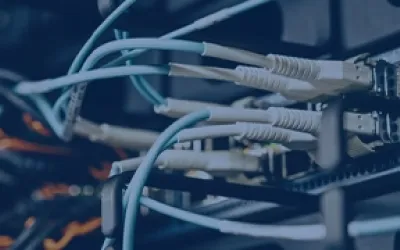
Start Your IT Career and Grow
Fortray's CCNA 200-301 training course is designed to provide you with a comprehensive understanding of networking concepts, including network fundamentals, IP connectivity, security, and automation. Through a series of real-world lab scenarios, you’ll gain hands-on experience in configuring and troubleshooting Cisco devices, managing network traffic, and securing your network infrastructure. This course equips you with the practical skills necessary to succeed in real-world network environments and prepares you for the Cisco Certified Network Associate (CCNA) 200-301 exam.
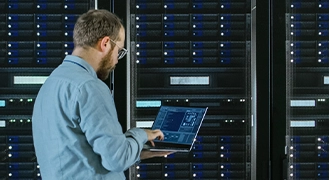
The Program is designed for Individuals having:
-
Basic understanding of computer networking concepts
-
Familiarity with networking devices (routers, switches, etc.)
-
Experience with operating systems (Windows, Linux, etc.)
-
Comfort with using command-line interfaces (CLI)
-
General understanding of computer hardware and software
-
Basic troubleshooting skills
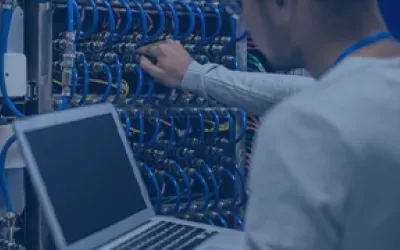
Following are the Key Features:
-
Instructor-Led Training with Expert Guidance
-
Hands-On Labs for Real-World Practice
-
Comprehensive Curriculum Covering Key Topics
-
Focused Certification Exam Preparation
-
Industry-Relevant Real-World Scenarios
-
Job-Ready Networking Skills Development

Following is the list of Skills Covered:
-
Network Components and Topologies
-
IP Addressing and Subnetting
-
IPv4 and IPv6 Configuration
-
Wireless Networking Principles
-
Virtualization and Network Management
-
VLAN Configuration and Management
-
Interswitch Connectivity and Troubleshooting
-
Layer 2 Protocols (CDP, LLDP)
-
EtherChannel Configuration (LACP)
-
Spanning Tree Protocol (Rapid PVST+)
-
Routing Protocols (Static, OSPF)
-
NAT and NTP Configuration
-
DHCP, DNS, and SNMP Configuration
-
Security (ACLs, VPN, Password Policies)
Course Benefits
Explore the transformative benefits of this course for career excellence and success.
Skills Enhancement
Skills that evolve with the industry—stay relevant, stay ahead.
Global Recognition
Global employability, boosted credibility without territorial confines.
Job Prospects
Open doors of opportunities to further career growth.
Salary Growth
High-income skills that can lead to a secure, lucrative, six-figure salary
Job Security
Stability you can trust, ensuring guaranteed long-term success for a secure future.
Cisco CCNA 200-301 Learning Path
Advance your career by mastering networking technologies with hands-on skills and real-world experience.
Network Fundamentals
What you will learn:
-
Explain the role and function of network components
-
Describe characteristics of network topology architectures
-
Compare physical interface and cabling types
-
Identify interface and cable issues (collisions, errors, mismatch duplex, and/or speed)
-
Compare TCP to UDP
-
Configure and verify IPv4 addressing and subnetting Lab Included
-
Describe private IPv4 addressing
-
Configure and verify IPv6 addressing and prefix Lab Included
-
Describe IPv6 address types
-
Verify IP parameters for Client OS (Windows, Mac OS, Linux) Lab Included
-
Describe wireless principles
-
Explain virtualization fundamentals (server virtualization, containers, and VRFs)
-
Describe switching concepts
Network Access
What you will learn:
-
Configure and verify VLANs (normal range) spanning multiple switches Lab Included
-
Configure and verify interswitch connectivity Lab Included
-
Configure and verify Layer 2 discovery protocols (Cisco Discovery Protocol and LLDP) Lab Included
-
Configure and verify (Layer 2/Layer 3) EtherChannel (LACP) Lab Included
-
Interpret basic operations of Rapid PVST+ Spanning Tree Protocol
-
Describe Cisco Wireless Architectures and AP modes
-
Describe physical infrastructure connections of WLAN components (AP, WLC, access/trunk ports, and LAG)
-
Describe network device management access (Telnet, SSH, HTTP, HTTPS, console, TACACS+/RADIUS, and cloud managed)
-
Interpret the wireless LAN GUI configuration for client connectivity, such as WLAN creation, security settings, QoS profiles, and advanced settings
Connectivity
What you will learn:
-
Interpret the components of routing table
-
Determine how a router makes a forwarding decision by default
-
Configure and verify IPv4 and IPv6 static routing Lab Included
-
Configure and verify single area OSPFv2 Lab Included
-
Describe the purpose, functions, and concepts of first hop redundancy protocols
Services
What you will learn:
-
Configure and verify inside source NAT using static and pools Lab Included
-
Configure and verify NTP operating in a client and server mode Lab Included
-
Explain the role of DHCP and DNS within the network
-
Explain the function of SNMP in network operations
-
Describe the use of syslog features including facilities and levels
-
Configure and verify DHCP client and relay Lab Included
-
Explain the forwarding per-hop behavior (PHB) for QoS, such as classification, marking, queuing, congestion, policing, and shaping
-
Configure network devices for remote access using SSH Lab Included
-
Describe the capabilities and functions of TFTP/FTP in the network
Security Fundamentals
What you will learn:
-
Define key security concepts (threats, vulnerabilities, exploits, and mitigation techniques)
-
Describe security program elements (user awareness, training, and physical access control)
-
Configure and verify device access control using local passwords Lab Included
-
Describe security password policies elements, such as management, complexity, and password alternatives (multifactor authentication, certificates, and biometrics)
-
Describe IPsec remote access and site-to-site VPNs Lab Included
-
Configure and verify access control lists Lab Included
-
Configure and verify Layer 2 security features (DHCP snooping, dynamic ARP inspection, and port security) Lab Included
-
Compare authentication, authorization, and accounting concepts
-
Describe wireless security protocols (WPA, WPA2, and WPA3)
-
Configure and verify WLAN within the GUI using WPA2 PSK Lab Included
Automation and Programmability
What you will learn:
-
Explain how automation impacts network management
-
Compare traditional networks with controller-based networking
-
Describe controller-based, software defined architecture (overlay, underlay, and fabric)
-
Explain AI (generative and predictive) and machine learning in network operations
-
Describe characteristics of REST-based APIs (authentication types, CRUD, HTTP verbs, and data encoding)
-
Recognize the capabilities of configuration management mechanisms, such as Ansible and Terraform
-
Recognize components of JSON-encoded data
Network Fundamentals
What you will learn:
-
Explain the role and function of network components
-
Describe characteristics of network topology architectures
-
Compare physical interface and cabling types
-
Identify interface and cable issues (collisions, errors, mismatch duplex, and/or speed)
-
Compare TCP to UDP
-
Configure and verify IPv4 addressing and subnetting Lab Included
-
Describe private IPv4 addressing
-
Configure and verify IPv6 addressing and prefix Lab Included
-
Describe IPv6 address types
-
Verify IP parameters for Client OS (Windows, Mac OS, Linux) Lab Included
-
Describe wireless principles
-
Explain virtualization fundamentals (server virtualization, containers, and VRFs)
-
Describe switching concepts
Network Access
What you will learn:
-
Configure and verify VLANs (normal range) spanning multiple switches Lab Included
-
Configure and verify interswitch connectivity Lab Included
-
Configure and verify Layer 2 discovery protocols (Cisco Discovery Protocol and LLDP) Lab Included
-
Configure and verify (Layer 2/Layer 3) EtherChannel (LACP) Lab Included
-
Interpret basic operations of Rapid PVST+ Spanning Tree Protocol
-
Describe Cisco Wireless Architectures and AP modes
-
Describe physical infrastructure connections of WLAN components (AP, WLC, access/trunk ports, and LAG)
-
Describe network device management access (Telnet, SSH, HTTP, HTTPS, console, TACACS+/RADIUS, and cloud managed)
-
Interpret the wireless LAN GUI configuration for client connectivity, such as WLAN creation, security settings, QoS profiles, and advanced settings
Connectivity
What you will learn:
-
Interpret the components of routing table
-
Determine how a router makes a forwarding decision by default
-
Configure and verify IPv4 and IPv6 static routing Lab Included
-
Configure and verify single area OSPFv2 Lab Included
-
Describe the purpose, functions, and concepts of first hop redundancy protocols
Services
What you will learn:
-
Configure and verify inside source NAT using static and pools Lab Included
-
Configure and verify NTP operating in a client and server mode Lab Included
-
Explain the role of DHCP and DNS within the network
-
Explain the function of SNMP in network operations
-
Describe the use of syslog features including facilities and levels
-
Configure and verify DHCP client and relay Lab Included
-
Explain the forwarding per-hop behavior (PHB) for QoS, such as classification, marking, queuing, congestion, policing, and shaping
-
Configure network devices for remote access using SSH Lab Included
-
Describe the capabilities and functions of TFTP/FTP in the network
Security Fundamentals
What you will learn:
-
Define key security concepts (threats, vulnerabilities, exploits, and mitigation techniques)
-
Describe security program elements (user awareness, training, and physical access control)
-
Configure and verify device access control using local passwords Lab Included
-
Describe security password policies elements, such as management, complexity, and password alternatives (multifactor authentication, certificates, and biometrics)
-
Describe IPsec remote access and site-to-site VPNs Lab Included
-
Configure and verify access control lists Lab Included
-
Configure and verify Layer 2 security features (DHCP snooping, dynamic ARP inspection, and port security) Lab Included
-
Compare authentication, authorization, and accounting concepts
-
Describe wireless security protocols (WPA, WPA2, and WPA3)
-
Configure and verify WLAN within the GUI using WPA2 PSK Lab Included
9/10 of our learners achieve their learning objectives after successful completion
Hear it from our Alumni
Why Fortray
Fortray helps professionals take actual steps toward further Learning and Skills Enhancement through industry-focused training and project-based experience.

Cutting-Edge Curriculum
A well-structured curriculum is designed by industry experts, covering the latest job market trends to keep you ahead of the curve.

Project-Based Learning
Work on real-world projects that simulate actual job scenarios. Build confidence with practical, problem-solving exercises.

Learn from Industry Experts
Gain knowledge from professionals who bring real-world experience to the classroom. Stay ahead with insights from those shaping the industry.
Payment Options
Choose from flexible, interest-free payment plans designed to fit your budget and career goals.
Self-Paced £400
- ✅ Recorded videos
- ✅ Step-by-Step Workbooks
- ✅ 24/7 LAB access
- ❌ Live Expert Guidance
- ❌ Structured Guidance
- ❌ Tailored Content
- ❌ Private cohorts available
Enroll Now
Instructor-led £700
- ✅ Recorded videos
- ✅ Step-by-Step Workbooks
- ✅ 24/7 LAB access
- ✅ Live Expert Guidance
- ✅ Structured Guidance
- ❌ Tailored Content
- ❌ Private cohorts available
Enroll Now
Corporate Training Contact us
- ✅ Recorded videos
- ✅ Step-by-Step Workbooks
- ✅ 24/7 LAB access
- ✅ Live Expert Guidance
- ✅ Structured Guidance
- ✅ Tailored Content
- ✅ Private cohorts available
Enqire Now

Need More Flexibility?
To help you along your way, we can help you set up a customizable payment plan. Just book a call, we’ll provide you with the details!
Let's Arrange a CallPackages
Get the ultimate career boost with course bundles that offer in-demand skills and job placement assurance.
Cybersecurity Engineer Guaranteed Job OR Money back
Save upto 60%- Cisco CCNA Bootcamp £700
- Cisco ASA Firewall Bootcamp £1000
- Checkpoint CCSA / CCSE Bootcamp £2000
- Fortinet Firewall Bootcamp £2000
- Job Placement Services £2000
- CompTIA Security+ £700
- CISSP £2000
Cloud Security Engineer Guaranteed Job OR Money back
Save upto 60%- Cisco CCNA Bootcamp £700
- Cisco ASA Firewall Bootcamp £1000
- Checkpoint CCSA / CCSE Bootcamp £2000
- Fortinet Firewall Bootcamp £2000
- Job Placement Services £2000
- CompTIA Security+ £700
- CCSP £2000
Cybersecurity Manager Guaranteed Job OR Money back
Save upto 60%- Cisco CCNA Bootcamp £700
- Cisco ASA Firewall Bootcamp £1000
- Checkpoint CCSA / CCSE Bootcamp £2000
- Fortinet Firewall Bootcamp £2000
- Job Placement Services £2000
- CompTIA Security+ £700
- CISM £2000
Cisco CCNA 200-301 FAQs
This course is ideal for aspiring network engineers, system administrators, IT support professionals, and individuals seeking to start a career in networking.
No formal experience is required, but basic knowledge of computer networks and operating systems is recommended.
No, professionals and learners at any stage of their career can enroll and build in-demand networking skills.
No entrance exam is required. If you meet the basic networking knowledge requirements, you’re good to go.
The course typically takes 5 to 6 weeks, depending on your learning pace and lab participation.
Yes, Fortray runs scheduled batches. Visit the CCNA course page or reach out to our team for the next available start date.
No problem! All sessions are recorded, so you can catch up anytime at your convenience.
At Fortray, we accept various payment methods, including credit/debit cards, bank transfers, direct debit, and online platforms like PayPal for convenient transactions.
No, the payment plan is interest-free, and no extra costs are charged. You only pay the standard course fee.
Refunds are subject to the terms and conditions outlined in the Refund Policy. Please refer to it for detailed eligibility criteria and the refund process.
For payment or billing-related inquiries, please get in touch with our finance team at accounts@fortray.com.
Absolutely! CCNA is one of the most recognized and respected certifications in the networking field. It opens doors to multiple roles in IT and network administration.
- Network Support Engineer
- IT Support Technician
- Network Administrator
- System Administrator
- Junior Network Engineer
CCNA covers a broad range of real-world networking concepts, offers vendor-specific training, and is globally recognized—making it a valuable asset for your resume.
Yes! Fortray’s CCNA program includes practical labs, real-world scenarios, and guided simulations to build hands-on networking skills.
The course includes instructor-led sessions, hands-on labs, practice tests, and exam-specific preparation materials to ensure you're fully ready.
The exam consists of multiple-choice questions, drag-and-drop items, simulations, and scenario-based tasks. Your instructor will guide you on how to prepare effectively.
Yes, the CCNA certification is valid for three years. After that, recertification is required to maintain your credential.
No. Fortray’s flexible payment plans are interest-free. You only pay the course fee with no hidden charges.
Visit our CCNA 200-301 Course Page or contact our admissions team to get started.



